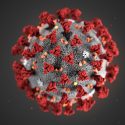COVID questions: Antibody disappearance, teen dating, voting
Editor’s note: We will be publishing answers to questions about COVID-19 and the pandemic each week in this COVID questions column. If you have a question, please email it to covid19update@uc.wisc.edu.
Q: If someone has had COVID, do the antibodies disappear after a certain amount of time?
A1: We don’t know exactly how long antibodies last, but there have been reports of people getting reinfected after one infection suggesting that the antibodies last for perhaps a few months.
– Nasia Safdar, professor, University of Wisconsin School of Medicine and Public Health, Medical Director of Infection Control at UW Hospital and Clinics
A2: The answer, unfortunately, is complex and somewhat unsatisfying. It appears that in many people, the antibody produced in response to an infection depends upon how sick an individual was and also tends to decline with time. We cannot predict in whom or how fast this decline will occur. In addition, the antibody tests are far less than perfect and provide false positive results (indicating exposure when there has been none) and false negative (indicating no exposure when someone has actually been infected).
In general, most people will make antibody, but this will decline over time. We are working to discover the rate to which this decline occurs.
– Jonathan L. Temte, MD/PhD, Associate Dean for Public Health and Community Engagement, University of Wisconsin School of Medicine and Public Health
Q: We have teenage children, who would very much like to resume in-person contact with their friends. We’ve instructed them about best practices for social/physical distancing and mask wear ing while “hanging out” with friends in outdoor spaces… but what do we tell them to do about resuming “dating” relationships? Is there a responsible way to go out on a date and have some sort of physical contact? What rules can we put in place to help them with that (keeping in mind that they are teens)?
A. When the Covid-19 pandemic forced everyone into isolation with their families, many teens with romantic relationships had to figure out how to cope with not being near, not being able to touch each other. As the pandemic drags on, this lack of contact can weigh heavily on the relationships and teens’ well-being. Surely, it would be okay for them get together at this point, wouldn’t it? No. You don’t know when you have it. You don’t know when you infect others. You don’t know when those others will affect even more people. You don’t know how serious the consequences will be for those infected — probably minor, but possibly long-term health problems. Or even death. Not being with someone you really love and care about is hard. Living with the knowledge that you caused someone life-long health problems or death—really hard! Love means caring for someone. Right now, we need to care for each other—by protecting each other from this virus. Period.
– Bradford Brown, professor of educational psychology (UW Health pediatrician Amy Stockhausen offers more tips for talking with teens about COVID-19 in this video.
Q: How will the pandemic affect our voting in the Presidential election in November?
A: For one thing, getting results will take a lot longer. The kind of instant gratification that a lot of us as consumers want to have on election night is probably not going to be there in November and probably understandably . The massive amount of human labor that’s required to open each of those envelopes in many states and to verify them and to feed them into voting machiens and then tablulate the results just can’t be done in a single evening especially with the large volume of voters we’ll see in November.
– Barry Burden, professor of political science and director of the Elections Research Center at UW–Madison. (Source, Badger Talks video here: https://news.wisc.edu/badger-talks-mail-in-voting-during-the-pandemic/)
See more answers to COVID questions at https://news.wisc.edu/tag/covid-questions/. Also, visit our COVID-19 impact site.
Tags: COVID questions, covid-19



